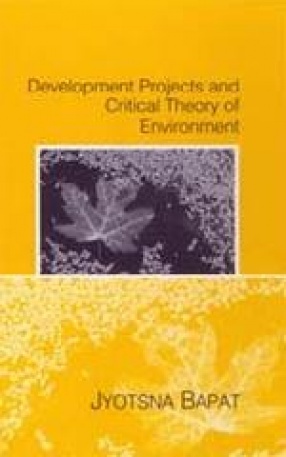Development projects, which are normally aimed at bringing about the socio-economic growth of an underdeveloped region, are initially welcomed with enthusiasm by local communities. Once these projects begin to be implemented, however, voices of dissent and even protest movements often emerge, threatening their completion. Existing theories of environment and development, though rich in empirical content, fail to adequately explain this phenomenon, which works against all stakeholders in the long run. This book proposes an original critical theory of environmental sociology which is verified through actual projects relating to infrastructure development. The author locates each development project in its social, institutional and historical contexts, and explains their outcomes as the consequence of the actions of various individuals and groups, each acting rationally to optimize their own interests. Six infrastructure development projects are covered, ranging from eco-tourism and amusement parks to power and mining projects, abatement of industrial pollution, and urban transportation. Interactions between project affected persons (PAPs), the promoters of each project and government agencies are analysed at different stages of the projects. The author concludes that agencies regulating environmental impact should adopt a ‘reconstructive adaptive’ strategy aimed at leaving the physical and socio-cultural environment in a better condition than when the project began. Similarly, development projects should ensure that PAPs, especially those whose livelihoods are linked to environmental resources, are at least as well of as they were without the project. This book is an important contribution to assessing the socio-cultural and environmental impacts of development projects. Incisive and well argued, it will appeal to a large readership, ranging from students of environmental sociology, anthropology, development studies and human geography, to development professionals and policy makers.
Proceedings of the International Conference on Business and Finance (Volume 2)
Here is a four-part series ...
$44.10
$49.00





There are no reviews yet.